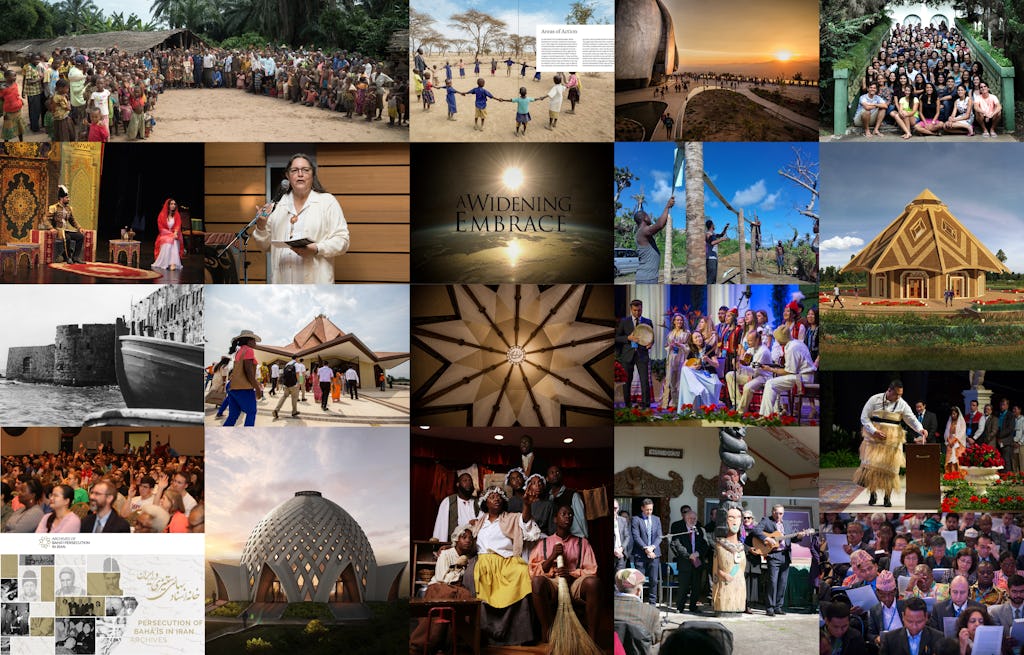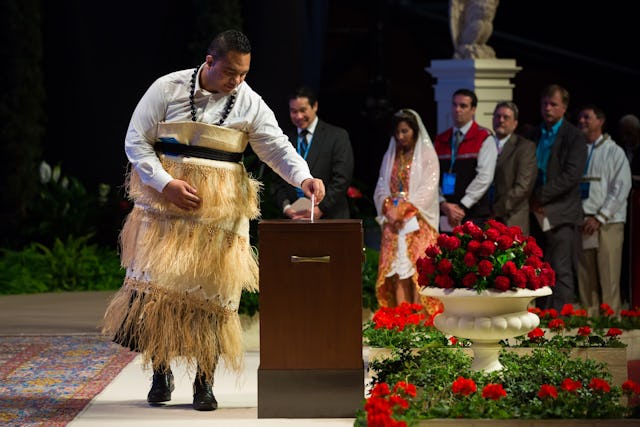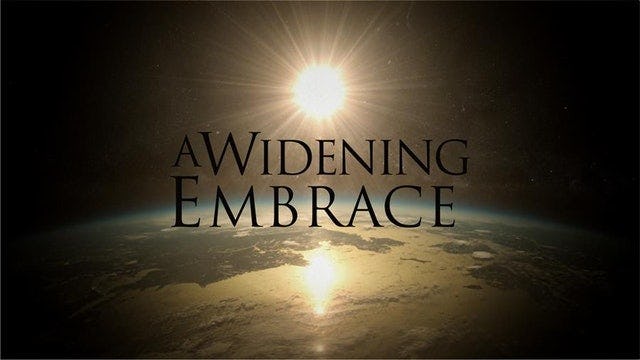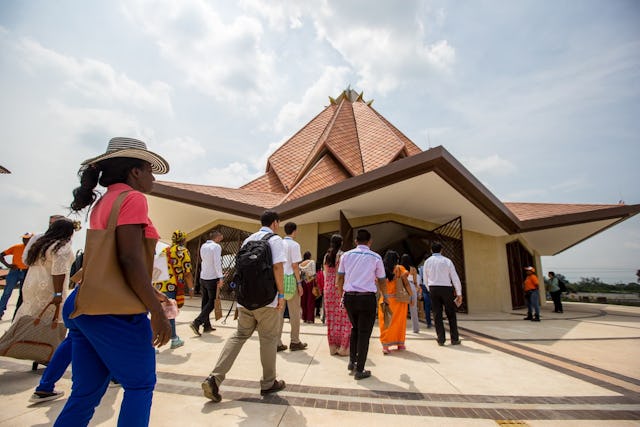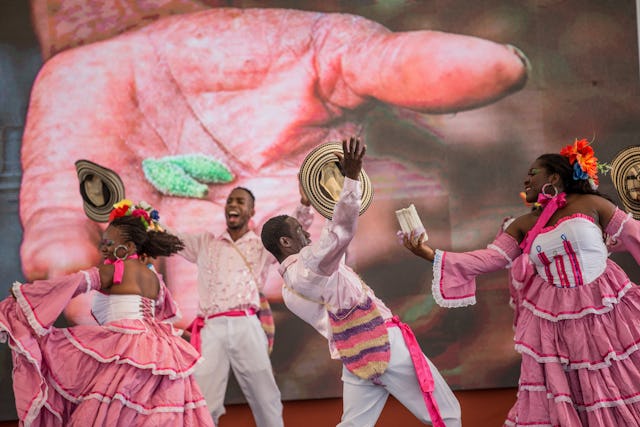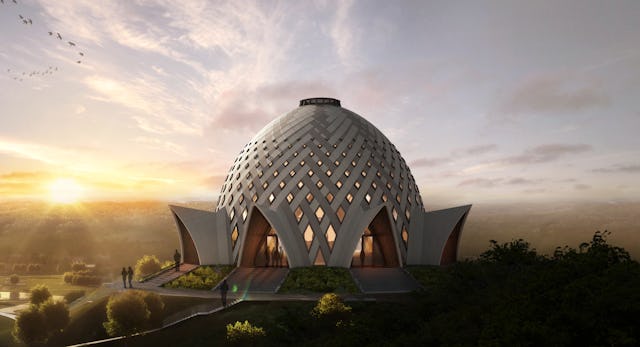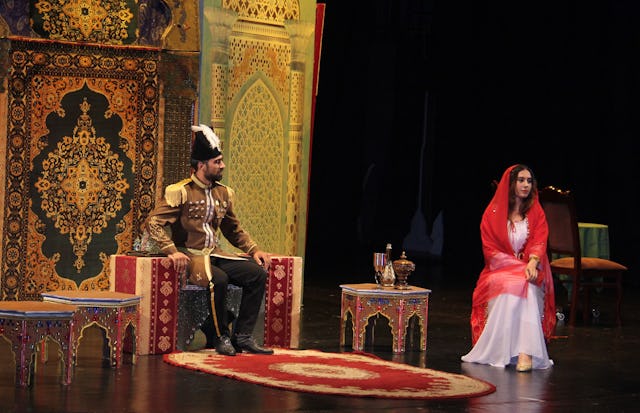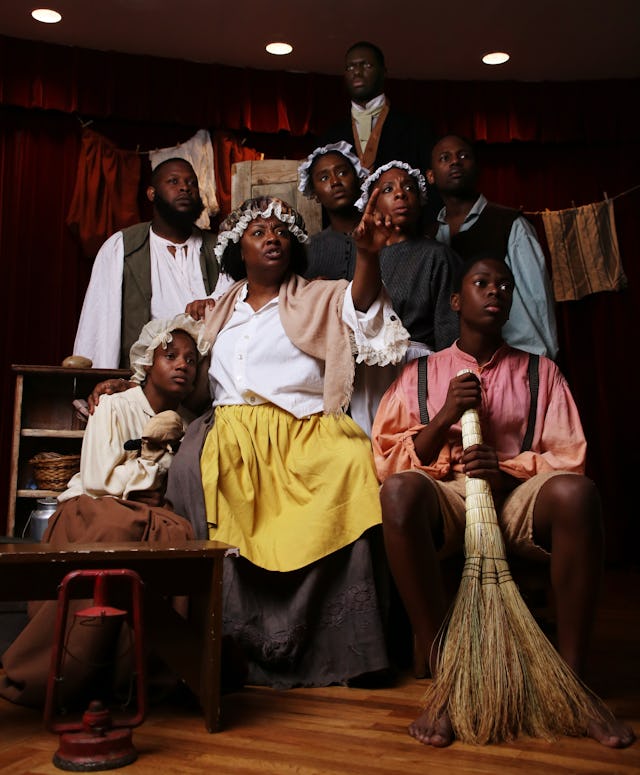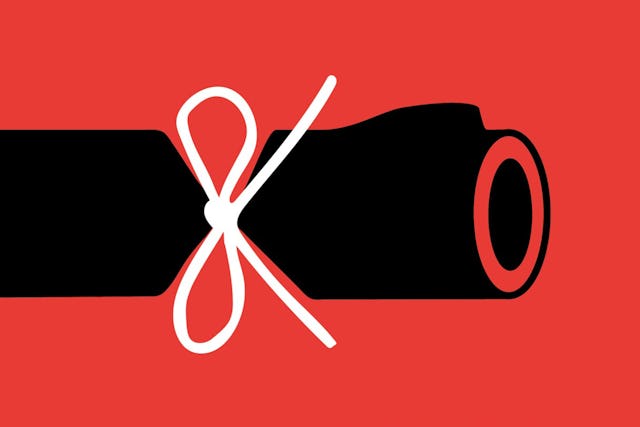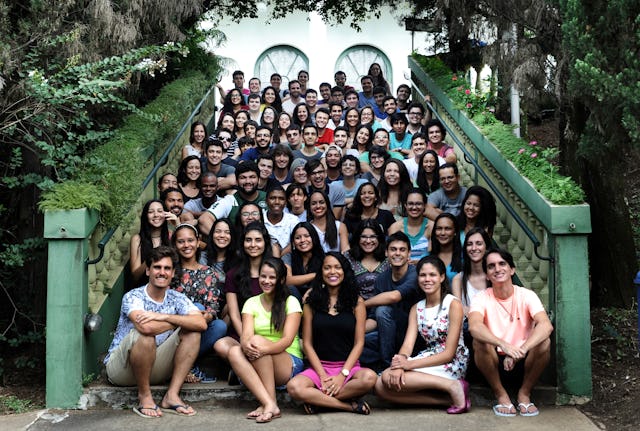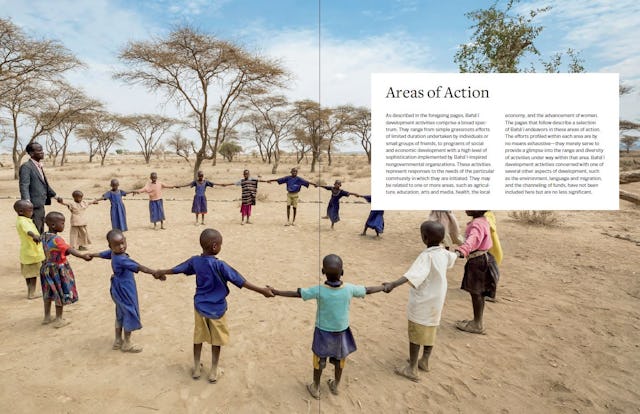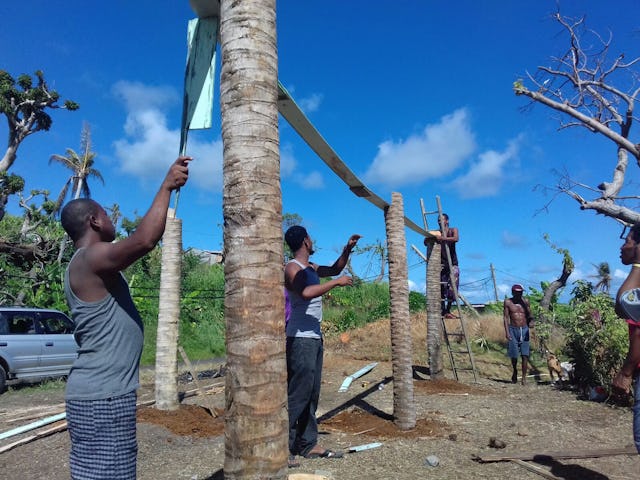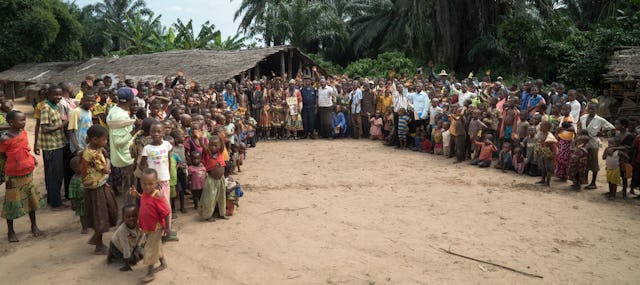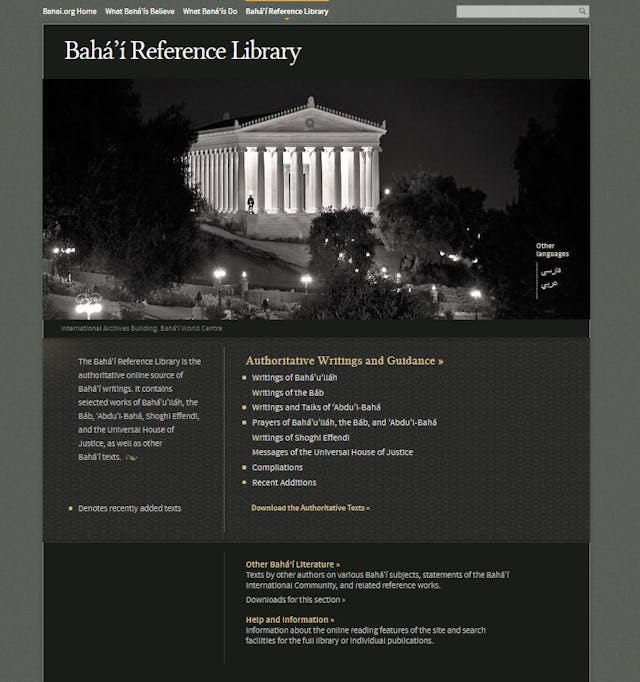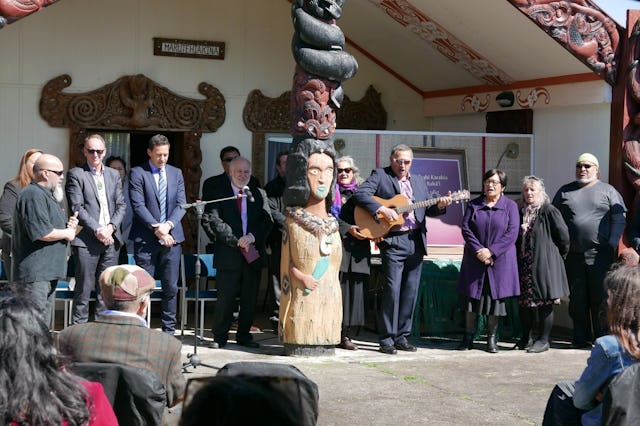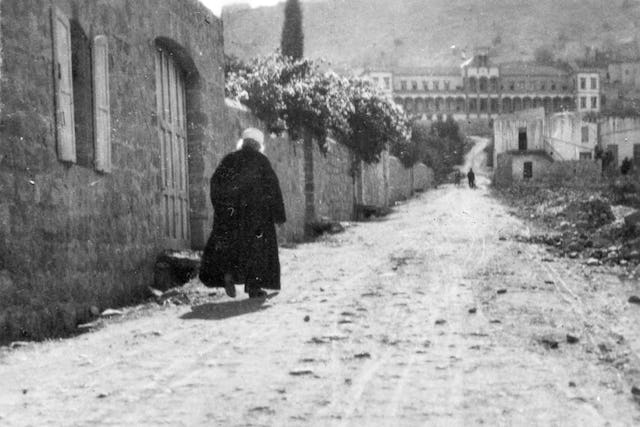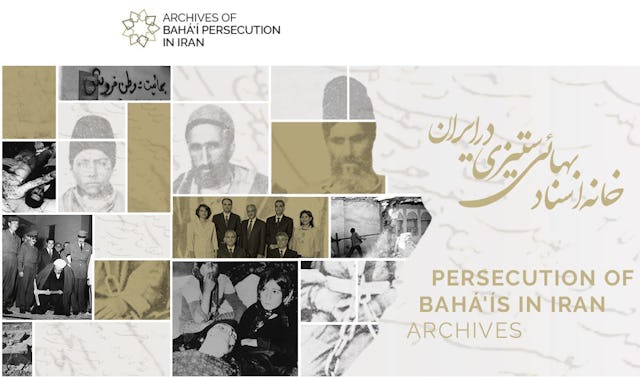2018 in review: progress and insights
BAHA'I WORLD CENTRE — For the Baha’i world, 2018 was marked by a wide range of developments. Through its podcast and written articles, the Baha’i World News Service sought to capture some of these developments and to explore new insights emerging from Baha’i endeavor.
Stories in the past year, which began in the afterglow of the bicentenary of Baha’u’llah’s birth, covered a diversity of topics.
Twelfth International Baha’i Convention
Held every five years, the International Baha’i Convention is a moment for representatives of every national Baha’i community to consult about the progress of the Faith in their lands and to vote for the members of the international governing body, the Universal House of Justice.
Representing 166 countries, more than 1,000 delegates attended the convention in Haifa. Delegates were shown a new documentary film about community building efforts around the Baha’i world. The occasion was also a time to make available a new section of the website for the bicentenary of Baha’u’llah’s birth.
Houses of Worship
The Baha’i world in 2018 witnessed the dedication of the second local Baha’i House of Worship. In July, more than 1,000 people attended a special dedication ceremony for the Temple in the Norte del Cauca region of Colombia.
The Temple’s dedication marked a new stage in the unfoldment of the Baha’i Faith in the region, where the Faith has had roots for more than four decades. The inauguration included a first visit to the Temple with great reverence, led by a representative of the House of Justice. The sharing of music, dance, and other artistic expression helped to create a joyful atmosphere for the occasion. Residents from nearby communities continued to visit the Temple for a series of special visits on the four Sundays following the 22 July ceremony.
Designs for Baha’i Temples in Papua New Guinea and Kenya were also unveiled in 2018.
In New Delhi, an educational facility was added to the Baha’i Lotus Temple, which continues to be a vibrant center of life for the city and beyond. The continental House of Worship first opened in 1986 and has had more than 100 million visitors. In Santiago, the Temple for South America has not only earned international recognition for its innovative architecture but is also a point of attraction and inspiration for people in Santiago and beyond.
Arts and Social Transformation
From collective expressions of music and drama at the grassroots to performances at prestigious venues, the Baha’i world continued to explore the nature of the connection between the arts and social transformation. The Baha’i World News Service wrote about a few examples of artistic expression from Azerbaijan, the United Kingdom, and Zambia.
Inspired by the life of Tahirih—an important figure in early Baha’i history—Azerbaijani journalist Kamale Selim Muslimgizi produced the play Daughter of the Sun. The stage performance highlighted Tahirih’s unmatched courage throughout her life as an influential poet, scholar, and champion of women’s emancipation.
At Edinburgh’s world-famous Fringe Festival, a new stage musical, Henry Box Brown, vividly brought to the life the story of a man who escaped slavery by shipping himself in a box out of the southern United States to freedom. Drawing on the arts as a powerful medium for raising consciousness, the show stimulates constructive conversation and inspires action and social change.
And in northwestern Zambia, where collective singing is an integral part of daily life, the Lunda people have been drawing inspiration from the Baha’i teachings to channel the power of music to unite.
Participation in the discourses of society
Efforts of the Baha’i community to contribute to the betterment of society at the level of thought are one of the themes followed by the Baha’i World News Service. Listen to parts 1 and 2 of a series of podcasts about the involvement of the Baha’i community in broad conversations focused on social betterment.
This year, the Baha’i International Community participated in forums focused on poverty, the equality of women and men, the role of youth in society, and international migration. National Baha’i communities also contributed to discourses on a range of themes, such as preventing radicalization in Spain, interreligious dialogue in Kazakhstan, the role of media in fostering social harmony in India, and reconciliation in Canada. In the United States, the Baha’i Chair for World Peace organized seminars on the themes of global peace and overcoming racism.
An article also explored the efforts of the Institute for Studies in Global Prosperity, a Baha’i-inspired educational and research organization that holds seminars to help young adults reflect on their part in the emergence of a peaceful and just global civilization.
Social and economic development
Various examples were reported this year of Baha’is engaging in social and economic development endeavors. A new edition of For the Betterment of the World detailed many examples of Baha’i contributions in this area.
Groups of Continental Counsellors discussed Baha’i-inspired educational endeavors in Africa. In the Caribbean island nation of Dominica, a hopeful community united to rebuild after a devastating hurricane. And on the other side of the globe in the Mentawai Islands of Indonesia, a conference reflected on the role of spiritual education in the development of peaceful and prosperous communities.
And in its 9 November message to the Baha’is of the world, the Universal House of Justice announced the establishment of a new global institution to “promote and coordinate the efforts of the worldwide community in social and economic development.”
The development of Baha’i communities at the grassroots
The profound impact Baha’u’llah’s teachings are having in communities around the world formed the basis of a number of other reports by the News Service. In January, an article featured how some villages in the Democratic Republic of the Congo are learning to transcend the longstanding barriers that divide people.
In a series of podcast episodes, the News Service interviewed groups of Continental Counsellors about insights emerging from community building efforts around the world.
Finally, the new film A Widening Embrace, which was released in April and mentioned above, tells the story of transformation unfolding in 24 communities representing different realities and contexts. A trio of short films accompanying the documentary was released in September, describing more about the process of social change being seeing in communities around the world.
Access to the Holy Writings
This year also saw the publication of new translations of the Baha’i writings as well as the implementation of a new feature of the Baha’i Reference Library. In its Ridvan message, the Universal House of Justice stated that the “feature will allow previously untranslated and unpublished passages or Tablets from the Holy Writings to be released online over time.”
In New Zealand, the first substantial book of Baha’i prayers was published in the indigenous Maori language, while in the Philippines, the Kitab-i-Aqdas was rendered into the widely-spoken Cebuano language.
A year of historic anniversaries
A century and a half after Baha’u’llah’s arrival to the Holy Land, the Baha’i World News Service produced a special series of podcasts about that significant period in history. The 3-part series explored the context into which Baha’u’llah was arriving in Akka on 31 August 1868, the events surrounding the day of His arrival, and the series of extraordinary writings He penned, addressing the kings and rulers of the time.
This year was also the centenary of the end of World War I, one of the most devastating conflicts in human history. In the years preceding the war, ‘Abdu’l-Baha made urgent efforts to promote peace. Once the conflict broke out, He took critical actions to ease suffering in the region. His call for peace, stating that it would require a profound transformation in human consciousness and a commitment to the spiritual truths enunciated by Baha’u’llah, perhaps has even greater relevance today.
Persecution of Iran’s and Yemen’s Baha’i communities continues unabated
The Baha’i communities in Iran and Yemen continue to face persecution.
In Iran, the last four imprisoned members of the former leadership group, the Yaran, were released from prison this year. Still, as the seven former members of the Yaran have now completed their unjust 10-year prison sentences, the country’s Baha’i community continues to suffer under the weight of state-sponsored systematic persecution.
Earlier this month, the United Nations condemned the country’s ongoing human rights violations against Baha’is. In January 2018, the Baha’i International Community launched the Archives of Baha’i Persecution in Iran website, prompting 25 prominent intellectuals and specialists in human rights law to call on Iran’s top human rights official to acknowledge his country’s long-standing state-sponsored persecution of the Baha’is. Iranians within and outside Iran have continued to denounce the persecution. Just last month, a group of Iranian Muslim intellectuals condemned the “systematic and deeply rooted violation of Baha’i citizens’ rights” and described it as “being inhumane and contrary to religious and moral obligations.”
In Yemen, a Baha’i who has been imprisoned unjustly for his religious beliefs since December 2013 was sentenced to death in January. The man, Hamed bin Haydara, remains in a prison in Sana’a, Yemen. In September, the country’s Iranian-backed Houthi authorities also targeted some 20 Baha’is with a string of baseless charges, including espionage and apostasy.
